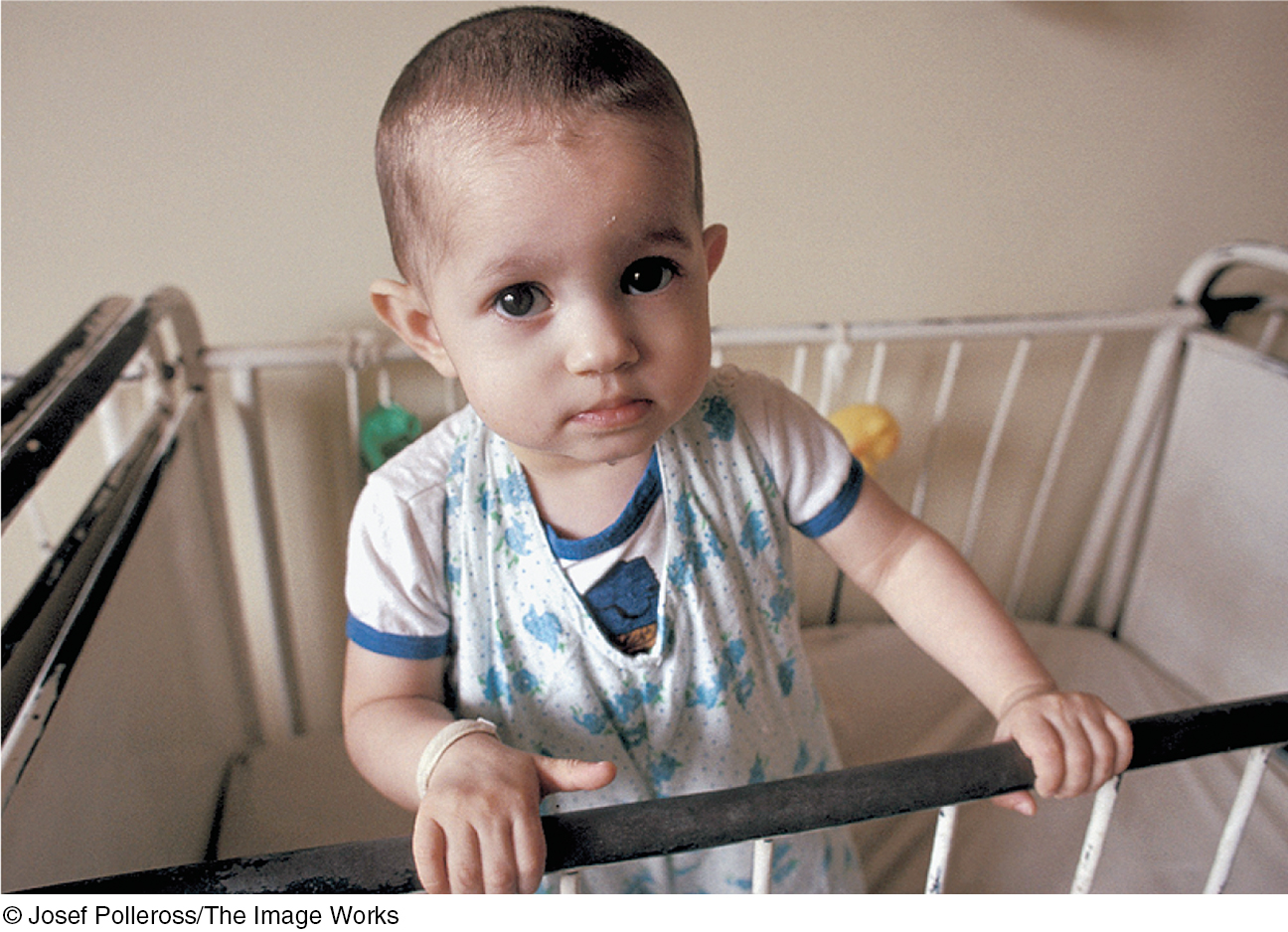28.2 Environmental Influences
28-2 What does evidence reveal about environmental influences on intelligence?
We have seen that biology and experience intertwine. Nowhere is this more apparent than in the most hopeless human environments. Severe deprivation leaves footprints on the brain, as J. McVicker Hunt (1982) observed in a destitute Iranian orphanage. The typical child Hunt observed there could not sit up unassisted at age 2 or walk at age 4. The little care the infants received was not in response to their crying, cooing, or other behaviors, so the children developed little sense of personal control over their environment. They were instead becoming passive “glum lumps.” Extreme deprivation was crushing native intelligence—a finding confirmed by other studies of children raised in poorly run orphanages in Romania and elsewhere (Nelson et al., 2009, 2013; van IJzendoorn et al., 2008).
Mindful of the effect of early experiences and early intervention, Hunt began a training program for Iranian caregivers, teaching them to play language-fostering games with 11 infants. They learned to imitate the babies’ babbling. They engaged them in vocal follow-the-leader. And, finally, they taught the infants sounds from the Persian language. The results were dramatic. By 22 months of age, the infants could name more than 50 objects and body parts. They so charmed visitors that most were adopted—an unprecedented success for the orphanage.

Devastating neglect Some Romanian orphans, such as this child in the Leaganul Pentru Copii orphanage in 1990, had minimal interaction with caregivers, and suffered delayed development.
© Josef Polleross/The Image Works
So, extreme conditions—malnutrition, sensory deprivation, and social isolation—can retard normal brain development. Is the reverse also true? Will an “enriched” environment give children a superior intellect? Most experts are doubtful (Bruer, 1999; DeLoache et al., 2010; Reichert et al., 2010). There is no environmental recipe for fast-forwarding a normal infant into a genius. All babies should have normal exposure to sights, sounds, and speech. Beyond that, Sandra Scarr’s (1984) verdict still is widely shared: “Parents who are very concerned about providing special educational lessons for their babies are wasting their time.”
More encouraging results come from intensive, post-babyhood preschool programs (Mervis, 2011; Tucker-Drob, 2012). Across a number of experiments, intelligence scores also rise with nutritional supplements to pregnant mothers and newborns (3.5 points), with quality preschool experiences (4 points), and with interactive reading programs (6 points) (Protzko et al., 2013).
“A high IQ and a subway token will only get you into town.”
Psychologist Richard Nisbett (quoted by Michael Balter), 2011
A child’s later schooling also pays intelligence dividends and enhances future income (Ceci & Williams, 1997, 2009). What we accomplish depends also on our own beliefs and motivation. One analysis of 72,431 collegians found that study motivation and study skills rivaled aptitude and previous grades as predictors of academic achievement (Credé & Kuncel, 2008). Motivation can even affect intelligence test performance. Four dozen studies show that, when promised money for doing well, adolescents score higher on such tests (Duckworth et al., 2011).
“It is our choices . . . that show what we truly are, far more than our abilities.”
Professor Dumbledore to Harry Potter in J. K. Rowling’s Harry Potter and the Chamber of Secrets, 1999
